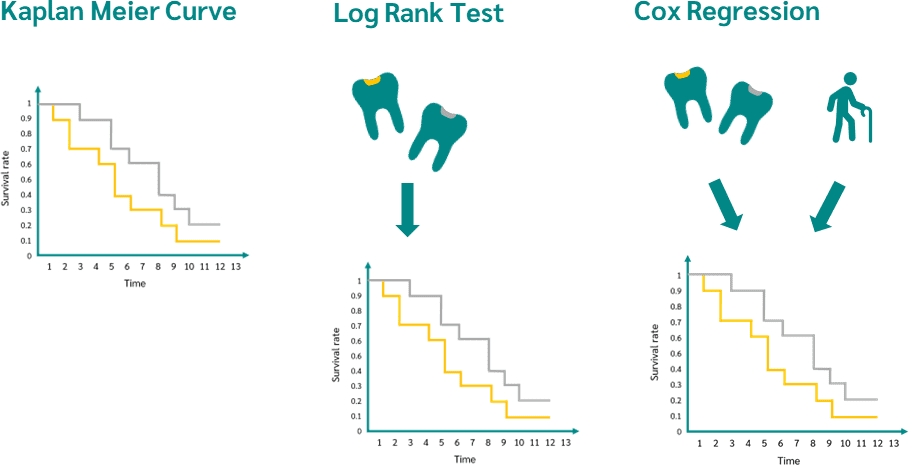Survival analysis is a powerful statistical technique used to analyze time-to-event data, such as the time until death or the failure of a machine. This method is widely applied in healthcare, engineering, and social sciences, where understanding the timing of events can lead to significant insights, improve decision-making, and drive advancements.
Survival Analysis in Healthcare
In healthcare, survival analysis is crucial for predicting patient outcomes and refining treatment strategies. A key development in this area is the AI-ECG Risk Estimator (AIRE), an AI-powered mortality calculator designed to predict health risks and lifespan based on ECG data. AIRE, set for trials in the UK in 2025, aims to enhance patient care by accurately identifying serious heart conditions early on.
However, experts caution that while such AI tools can be incredibly valuable, they should be used with care. AI mortality calculators can provide valuable insights, but they cannot fully predict individual life expectancy, given the influence of unpredictable and external factors (Economic Times).
The Emergence of Life Prediction AI Models
Another notable development is the Life2vec AI model, created by Danish researchers to predict life events, including lifespan. This model uses deep learning algorithms to analyze life patterns and forecast future events. While the potential for such technology is enormous, it also raises ethical concerns, particularly regarding data privacy and the possibility of discrimination (Economic Times).
As the trend of using AI and machine learning in healthcare continues to grow, these tools are providing increasingly accurate insights into patient health. This enables healthcare providers to develop personalized treatment plans that improve patient care. For example, the Life2vec model represents a significant leap forward in predictive AI, utilizing vast datasets to predict personal health outcomes and lifespan, potentially revolutionizing patient management (Economic Times).
Ethical and Privacy Concerns in AI Predictions
Despite their potential, the use of AI for predicting life outcomes comes with notable challenges. One of the primary concerns is the ethical and privacy implications of using personal data for such predictions. Misuse of this data could lead to discrimination or unfair treatment based on life expectancy forecasts. To mitigate these risks, it is vital for policymakers and researchers to create regulations and guidelines that govern the responsible use of such predictive technologies (Economic Times).
Applications of Survival Analysis Beyond Healthcare
Survival analysis isn’t limited to healthcare; it is also used in other sectors, such as engineering and social sciences:
- In engineering, survival analysis can predict when machines will fail, helping with maintenance and reliability assessments.
- In social sciences, it can be applied to analyze the timing of events like marriage, employment, or migration, providing insights into societal trends.
These applications emphasize the versatility of survival analysis, helping researchers and professionals better understand the timing and risks associated with various events.
Challenges and Limitations of AI Models in Predicting Life Events
Despite their promising potential, AI models in survival analysis are not foolproof. The accuracy of life event predictions can be impacted by various unpredictable factors, making it difficult to provide 100% accurate forecasts. For instance, while AI can identify trends and correlations in large datasets, individual outcomes may still be influenced by many variables that are not accounted for in the models.
Given these limitations, it is important to use AI-powered tools in conjunction with other methods, ensuring that predictions are seen as one piece of a broader, more nuanced approach.
Conclusion: The Future of Survival Analysis and AI in Predictive Analytics
In conclusion, survival analysis and AI-powered predictive tools hold immense promise, particularly in the healthcare sector. These technologies can provide valuable insights into patient health, improve treatment strategies, and enhance overall patient care. However, ethical and privacy concerns need to be carefully addressed to ensure that these tools are used responsibly and fairly.
As the field of survival analysis continues to evolve, and AI technology becomes more advanced, these tools will play an increasingly important role in helping us understand and manage time-to-event data. Whether predicting health outcomes, improving machine maintenance schedules, or analyzing social trends, the future of survival analysis and AI in predictive analytics is poised to drive significant advancements across a wide range of industries.
Ready to Transform Your Hotel Experience? Schedule a free demo today
Explore Textify’s AI membership
Explore latest trends with NewsGenie
